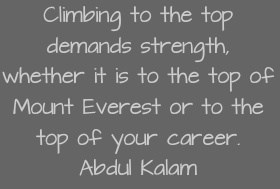 Learn what a career counselor does in this job description from a self-employed career consultant. Ed Hallenbeck is the owner of Design Consulting; here, he shares what it’s like to help people find the right career.
Learn what a career counselor does in this job description from a self-employed career consultant. Ed Hallenbeck is the owner of Design Consulting; here, he shares what it’s like to help people find the right career.
The recession has caused many people to reconsider their career or look for another line of work. As companies reorganize and downsize to cope with the current economic crisis, a career counselor can be a life-line of support for generating positive steps toward a new career or a new job.
Career counseling often is offered as part of a severance package when an organization is downsizing. If it is offered, take advantage of it as a way to define, or redefine, your career and life goals.
Here an experienced career consultant describes the work he does when counseling people who are making major decisions about their career and their life.
Ed Hallenbeck, Career Consultant and owner of Career by Design Consulting in upstate New York, defines what he does as providing “a full complement of customized career services to help guide and inspire individuals at any stage of their career path in discovering and pursuing their purpose and passion…the role of the career counselor is to be a coach, guide and mentor.”
Some of the services offered through Career by Design Consulting are:
- Self-Assessment Tools and Analysis
- Career Exploration, Research, and Decision-Making
- Professional Resume, Cover Letter and Portfolio Development
- Job Search Skills, Strategies, and Resources
- Interviewing Preparation and Techniques
- Salary Research and Negotiations
- Surviving and Thriving in the Workplace
What is the Average Salary of a Career Consultant?
In the Capital Region of the state of New York, career counselors who work in higher education assisting traditional and returning adult students with career planning, typically earn a median salary of $40,000 or more. An executive recruiter may earn more, depending on his clients and job placements.
A self-employed Career Consultant’s income can be higher depending on their client base, work ethic, and services offered. Hallenbeck says the higher earnings of a self-employed career consultant are usually offset by having to pay for their own healthcare insurance, pension, and other benefits.
Education and Training for Consultants
Minimally, a bachelor degree in counseling, psychology, or a closely related field is required, but a master degree is recommended. Hallenbeck says “professionals can also enhance their qualifications by obtaining certification through a recognized professional association, such as the National Career Development Association.”
“Career consulting is a theory-based profession,” Hallenbeck states, that requires “excellent communication and interpersonal skills…and a sound knowledge and foundation in career theories, concepts, strategies, and techniques.”
The Best Parts of a Job as a Career Counselor
Hallenbeck enjoys “making a difference in other people’s lives. It is the one thread that has run through all of the work I have done throughout my career.” He’s found that “to help someone discover their purpose and passion, and then to help them realize their dreams through proven career strategies and techniques is very satisfying and rewarding.”
Since a balance between work life and personal life is very important to Hallenbeck, he finds the flexibility he has in scheduling his own work gives him a “sense of control over my work life and personal life” that he particularly likes.
If you’re interested in being a career counselor, you need to start learning how people choose careers.
The Downside of Helping People Choose Careers
For Hallenbeck, it’s difficult to not always know the outcome of the work he has done with a client. He often has clients express satisfaction with the services he’s provided, but “it is not always easy to “quantify” the impact he’s made in the client’s life.
“Particularly in our present economic climate” Hallenbeck says, “it may take a client three to six months…to find employment,” and that client may not always report the outcome of the job search.
“Career consulting can sometimes be viewed as a ‘soft’ service, and thus perhaps not valued as highly as other services…” Hallenbeck states. Clients come away with “new knowledge and insights” about themselves and about careers, but because it is intangible, it may not be adequately valued.
Career Tips for the Consulting Business
Working as a career consultant or recruiter (or a headhunter!) requires patience, persistence, and also the ability to “let go,” says Hallenbeck. Career counseling requires “active listening, asking the right questions and providing the right resources to help the client find their ‘next right answer.’ The role of the career consultant is to be a coach, guide and mentor.”
For another job description that involves career counseling, read How She Became a Small Business Marketing Consultant.
Ed Hallenbeck is an experienced career consultant with expertise in career development, human resource management, training and coaching, organizational and workforce development. He has extensive experience providing professional career consulting services to a diverse group of undergraduate and graduate students, displaced workers, and private clients from a variety of cultures and backgrounds. In addition, Ed has fifteen years of experience as a human resource generalist, in both public education and the private sector. He earned an M.A. in Community Psychology from Sage Graduate School, and is an active member of the National Career Development Association, Society for Human Resource Management, and the Capital Region Human Resource Association.
Barbara Shema is a freelance writer and artist. Barbara also has a TEFL certificate and volunteers with international students enrolled in the Intensive English Language Program at the University at Albany.
If you have any thoughts on this career counselor job description, please comment below…




